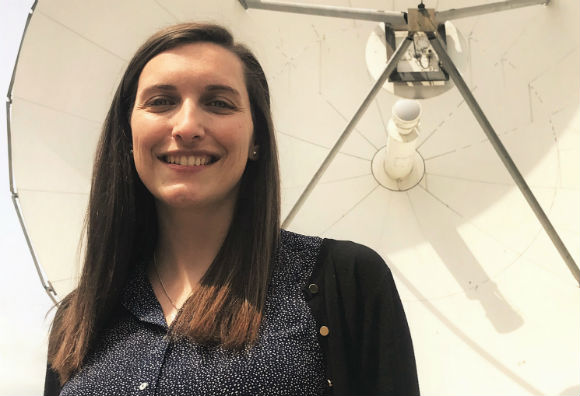Women in Engineering Day: the advantages & disadvantages of being a female engineer
- Victoria Shepherd
- Last updated 21 Jan 2019
Victoria Shepherd, Service Excellence Manager at Arqiva talks us through all the aspects of being a female engineer, to help all of you out there who might be considering it as a career.

When I started my engineering apprenticeship at Arqiva 10 years ago, I joined what was a roughly 95% male-dominated profession, and was the first female broadcast engineer ever to work in the company’s Winchester satellite master control room.
Inevitably, during my first years in the industry, I faced some challenges finding my feet and establishing myself among colleagues and clients – due in part to my gender, but also my young age. There were certainly occasions when I would arrive on site for a job and be asked, “so when is the engineer turning up?”
Unfortunately, this was just a largely unconscious by-product of what the industry was used to. As a woman I was slightly seen as a new entity, and that brought its own challenges. In the early years, not only was I focused on developing my own skills, but also trying to change any misperceptions around my ability to do the job.
It has been hard work, but I have also been able to turn it to my advantage. Yes, I might have had to put in a little more effort to earn the recognition of those around me, but my colleagues and clients now have an even deeper respect for my work, and I have been able to develop a good reputation across the business. Being one of the growing number of female engineers in my company, people also remember me more easily. When you are the only women in a room of 15, you stand out from the crowd whether you like it or not.
A number of companies like Arqiva have been working to bring more woman into the industry through their engineering apprenticeship schemes, and according to the Woman in Engineering Society (WES), the percentage of female engineers has doubled in 10 years – 11% as of 2017.
I believe that the biggest driver of more woman entering the engineering industry is having female role models to look up to – that make women think “if they can do it so can I.” This relies on a band of individuals who are willing to step into male-dominated worlds, change perceptions, and inspire a new generation of female engineers. I think this is a wonderful responsibility to be able to assume through working in this sector, and it has given me a unique sense of pride in my work.
There is still a long way to go in terms of persuading more women to consider engineering as an attractive career, but the industry has made significant progress in recent years. A number of companies like Arqiva have been working to bring more woman into the industry through their engineering apprenticeship schemes, and according to the Woman in Engineering Society (WES), the percentage of female engineers has doubled in 10 years – 11% as of 2017.
Based on my experiences, I can attest that there has been a clear shift in attitudes around gender since I began my career and there is definitely a far greater sense of openness. The nationwide focus on STEM subjects has helped more broadly at a grass roots level and, within this, the number of campaigns targeted at attracting young women to the profession have contributed to the more recent female apprentices at Arqiva finding that gender isn’t any kind of barrier to their ability to flourish. This is an immensely positive trend that I am sure will continue for years to come.
With the ability to become a female role model, and have a role in the future transformation of a hugely exciting industry, I believe there is no better time for a woman to pursue a career in engineering.
News
- The weirdest Christmas holiday jobs
- Ada Lovelace Day: 5 women who’ve changed the face of tech
- School Leaver Awards 2018: Spotlight on MediaCom
- School Leaver Awards 2018: Spotlight on Bentley Motors
- A Christmas list to help your career
- National Apprenticeship Awards: meet the nuclear apprentice of the year
- Epic prom fails
- David Beckham and other famous apprentices
- Women in Engineering Day: five reasons my engineering apprenticeship was the right choice
- Nepotism: 5 celebrities with famous parents